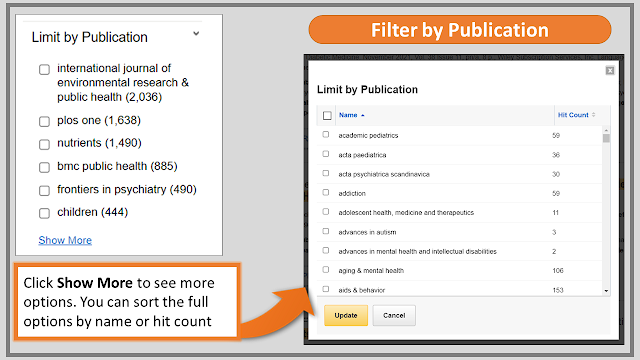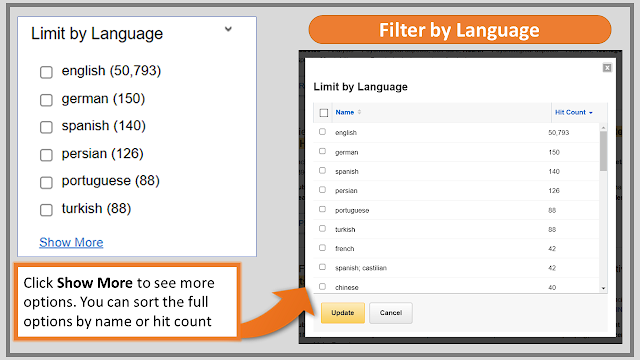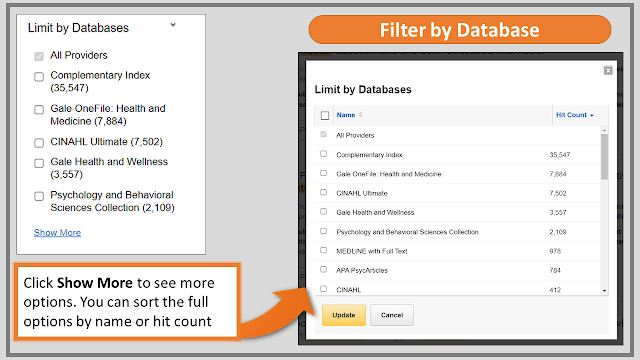Search the NHS Knowledge & Library Hub to find healthcare information from a wide range of NHS-based sources. Your results may include thousands of items. Focus your search results to make it easier to find what you need.
There are a number of filters you can use:
- Publication Date
- Source Type
- Subject
- Publication
- Publisher
- Language
- Databases
The screen-shots below are taken from a search. The hit
counts and elements available will vary depending on your results. Note that
each filter you apply builds on the previous selection, so you should see your
number of results decreasing with each selection.
Publication Date
Use this filter to focus on the latest information or a
specific date range.
Source Type
This filter allows you to select particular type of
information source, for example books etc. For articles select the option academic
journals. Click the Show More link to see all the source types available for
this search. You can order the list either by Name (of source type) or hit
count. Hit count is the number of results for this source type. You can select
more than one option.
Subject
Use the Subject filter to focus on a particular main subject
area for the information you are looking for. Again the Show More link will give you
all the subject areas found and you can re-order this list to make it easier to
find the subject you are looking for.
View Your Filter options
Some of your filter options are listed at the top of the
results page. You can de-select individual filters listed or clear them all.
Advanced Filters
There are a number of other filters which may only be useful
if you are confident in what you are looking for. These are:
- Publication
- Publisher
- Language
- Databases
Publication
Publication refers to a particular title, such as a book
title or journal title. This is useful if you are looking for a particular
reference.
Publisher
Only use the publisher filter if you are confident of what
you are looking for. Selecting this will limit your search considerably and introduce
bias. It is also worth noting that publications can change publisher and some
platforms host a number of different publishers. So it is difficult to know
what information you are excluding.
Language
It can be useful to limit your results by language, to the
languages you can understand. Likewise, if you know that something is in a
particular language, particularly if non-english, this will focus your results
considerably.
Databases
The databases option is another filter that you should be
cautious about using, depending on the type of search you are conducting. It can
be good to focus on databases you are confident will be more specific to your
subject, for example mental health databases. However, if you conducting a wide
ranging search you need to ensure that your search covers more resources.
Get Access
NHS staff can use the NHS Knowledge & Library Hub; log
in with your NHS OpenAthens username.
More help
- Complete our Information Skills etutorials to develop your search skills
- Watch our video playlist for the NHS Knowledge and Library Hub
- Book on a training course with our librarian team
- Contact the Health Library if you need any more assistance finding the information you need.









Comments
Post a Comment